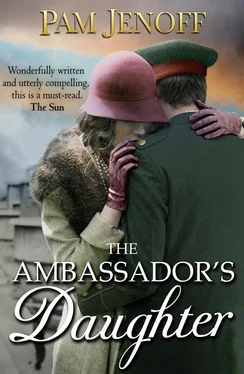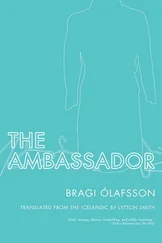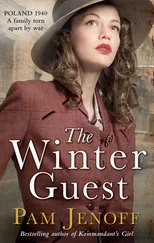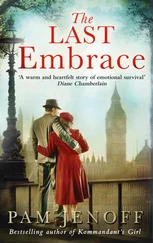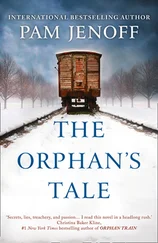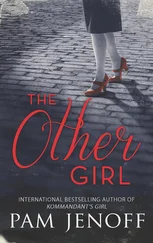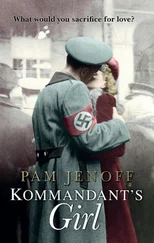“Excuse me?”
“When we last spoke, you were trying to figure out what you were going to do.” She watches me expectantly, as though I was supposed to have remolded my life plan in a few short weeks. Why must I do at all? As a girl, no one expected me to do or be—I just was, a happy state of affairs that I should have liked to carry on indefinitely. In truth, our conversation and Krysia’s challenge had prickled at me nonstop since our last meeting. But I have no new answers. There have always been expectations: I will be wife to Stefan, a mother someday if his condition still permits it. Those things just meant being an appendage to the lives of others, I see now. Could that possibly be enough?
“You have a real gift with words,” she adds when I do not answer. “Have you ever considered being a writer?”
I laugh, toss my head. “A writer? What would I say? You have to have more than just words—you need life experience and I have so little of that.”
“Where will you go after the conference?” she asks, trying an easier question.
“Back to Berlin with Papa, I suppose.”
She scrutinizes her knitting, then pulls out a stitch. “Why? Why not see a bit of the world now, while you can?”
“But my fiancé …”
“Ah yes, you mentioned him the other night, fleetingly. Once you go back to him, there will be a wedding, then children. There will always be something to stop you. You only have right now. Go while you can.”
“I’ll go back to Stefan after the conference,” I say stubbornly.
“You sound enthralled.”
“I didn’t mean it that way.” But it isn’t my tone that she has taken issue with—it is the fact that I am going back at all.
“Is that what you want?”
I start to say yes, then stop. It is a lie.
“Then why go?”
“Because he is my fiancé. And he was badly wounded.”
I expect her to ask how he was hurt, the seriousness of his injuries. “Do you love him?” I’m not sure what love is, really. When I was fifteen, Stefan and our tiny neighborhood, the park where we would walk together, and our quiet cinema dates, were the only world I had ever known. Stefan would have changed during the war.
“I care for him.”
“That isn’t the same.”
“I know.” I turn to gaze out the window at the courtyard below. “I feel so differently now.”
“Or maybe you feel the same, but you’ve changed and so those feelings are no longer enough.”
I consider this. Part of me has always sensed that there were differences. I recall a conversation Stefan and I had once about my mother. I’d found an old playbill from a show she’d done in Morocco and shown it to him. “How exciting,” I remarked, “to have traveled the world.”
But Stefan had looked at me blankly. With everything he wanted right here in Berlin—his family and me—he had no desire to leave. “It must have been terribly difficult,” he replied, “not to mention dangerous.”
I could see it in his eyes, too, the day he left for the army. “You’ll get to go so many places,” I’d offered as we stood on the platform and said goodbye, trying to force optimism into my voice. “Belgium, Holland, maybe even France.” But Stefan had never wanted to leave in the first place, whereas I could not wait to go. No, the differences were there even before the war, but it had taken the years apart to make me perceive them clearly. Now they are magnified, not just by time, but the ways in which I had changed, as well.
“Maybe,” I reply to Krysia. “We were so young and four years apart feels like a lifetime. Sometimes he seems more like an idea than a person. I hate feeling this way. And he needs me.”
“A sense of obligation is no way to start a life,” she presses.
“Loyalty is important.” My voice sounds tinny and weak.
“So is happiness. Would you want someone to marry you for such a reason?”
“No, of course not.” But I am not lying wounded in a hospital bed, with no prospect of a future. I am suddenly annoyed. I barely know Krysia. Why is she asking me such things? “I should go.” I stand and put on my coat. “Thank you for the coffee.”
I half wish she will try to stop me, but she nods, rising. “Thank you for calling. I hope to see you again soon.”
Outside it is warmer now, the late-morning sun taking away some of the chill. The sidewalks are now lively with pedestrians, merchants and deliverymen unloading crates from lorries. As I make my way toward the metro, Krysia’s questions about Stefan prickle at me. I hear her voice, exhorting me to see the world now, while I still can. A thousand objections roar through my brain: I can’t leave Papa. I can’t travel alone.
Nothing has changed—my problems loom as large as ever. But despite my earlier annoyance, it felt good to share my fears about Stefan and a life together with Krysia, to verbalize to somebody the thoughts and feelings I’d barely dared to acknowledge to myself for so long. And Krysia confiding her story of Emilie helped, as well. Learning that someone as strong and self-assured as Krysia also wrestles with the past and the right thing to do makes me feel somehow less alone. She seems to enjoy my company, though perhaps I am simply a proxy for the daughter she so desperately wants to know but cannot. Squaring my shoulders, I start down the street with a lighter gait than I’ve had since before the war.
Forty minutes later, I reach our suite at the hotel. I open the door and stop. The curtains are drawn and only faint daylight filters in. A rustling noise at the desk startles me and I jump. Papa is here, hunched over the desk in the darkness, when he should have been at the ministry. “Papa?” Alarmed, I rush forward. He does not move. I put my hand on his shoulder, fearful that it is his heart and the worst has happened. “Papa, are you well?”
He straightens but his expression is dazed as though he does not see or recognize me. Before him on the desk sits a newspaper. “There’s been an attempt on Clemenceau’s life.” I pick up the paper. My breath catches as I take in the photograph of the would-be assassin. The dark-eyed boy from the La Closerie des Lilas stares back at me.
“The attacker possessed information from the conference that was not public, information that prompted him to act.” Papa drops his head to his hands once more. “And I’m afraid they’re going to blame it on me.”
PART TWO Versailles, April 1919
I peer out the window down the road at the Hôtel des Réservoirs. The six-story building, with its aged yellow facade and arched doorway, stands behind hastily erected barbed wire, giving it the feel of a fortress or prison, depending upon whether one is to be kept in or out. Either way, it looks as if the German delegation is to be quarantined, defeat a virus that no one wants to catch. Apple blossoms frame the hotel in a defiant lush pink.
The road leading to the guarded hotel gate is lined three deep with onlookers, reporters and photographers and townspeople and those who had packed the trains down from the city. There is no official party as there had been when Wilson arrived, no military band or other pageantry to herald the Germans’ arrival—just hordes of the genuinely curious, waiting to see those who are to be held responsible for the world’s suffering.
I turn back into the room where Papa sits working at his desk, oblivious to the spectacle taking place across the road. Our apartment in Versailles is located not in a hotel, but a tall row house that has been converted into apartments to accommodate the sudden influx. It is laid out much like our previous quarters in the city, two bedrooms adjoined by a common space. Everything, from Papa’s piles of books to the photograph of my mother on the mantelpiece, is in the same location as in Paris. It is as if we travel in a shell, I’d decided when we first settled in, re-creating the identical living environment for ourselves in each city. But the rooms here are smaller and oddly shaped, the parlor something of a trapezoid, walls with faded flowered paper slanting inward from the windows.
Читать дальше
